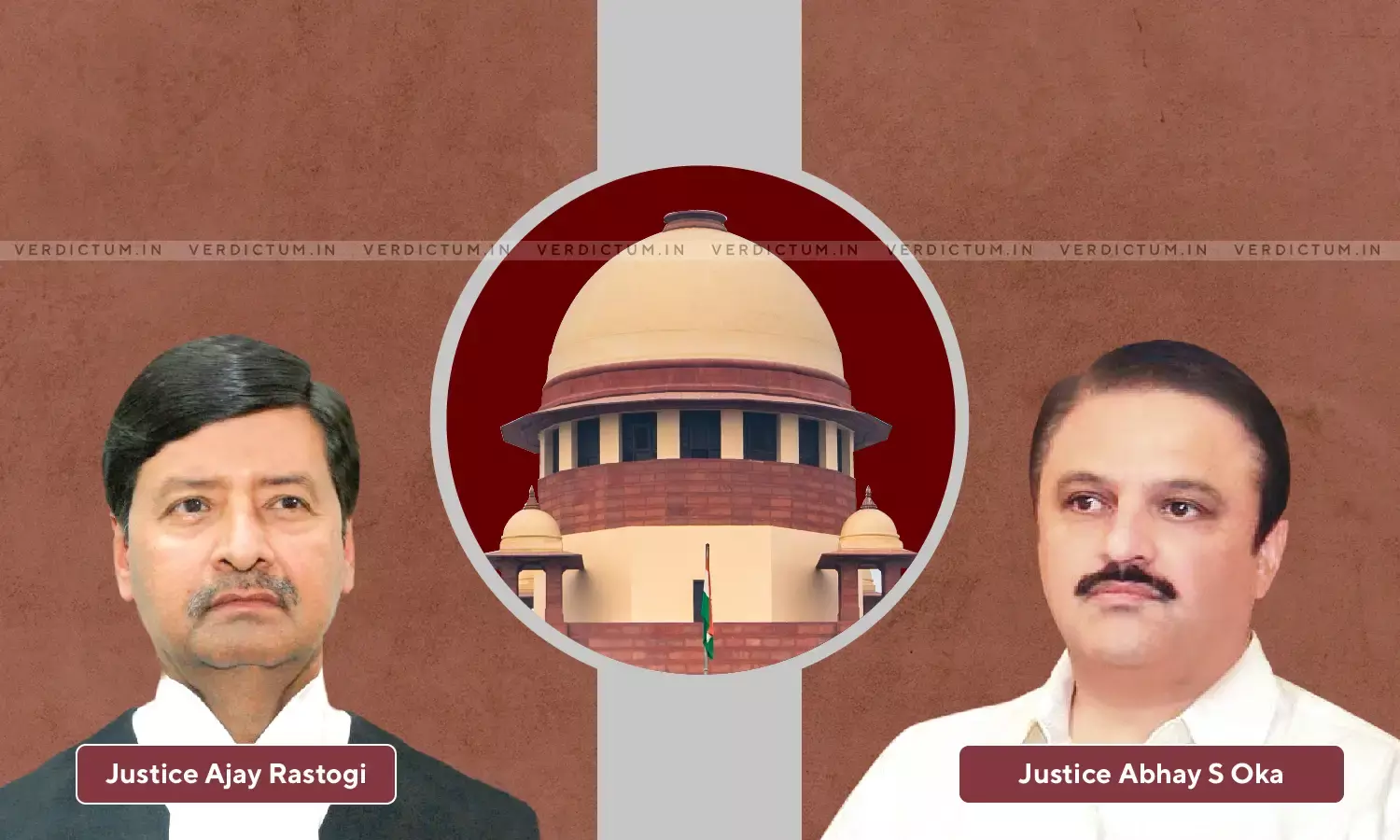Aggravating And Mitigating Circumstances Must Be Considered For Reduction Of Sentence In Compromised Cases: Supreme Court
A two-judge Bench of Justice Ajay Rastogi and Justice Abhay S. Oka has held that a compromise between the parties can only be a mitigating factor to decide upon the sentence of the accused while refusing to accept the plea for reduction of sentence based on a compromise between the victim and the accused.
The Court noted, "…the compromise cannot be taken to be a solitary basis until the other aggravating and mitigating factors also support and are favourable to the accused for molding the sentence which always has to be examined in the facts and circumstances of the case on hand.."
An appeal was preferred before the Supreme Court against the judgment passed by the Bombay High Court upholding the conviction of the Appellant-Accused under section 326 of IPC sentencing him to 5 years of rigorous imprisonment along with a fine of Rs. 10,000 and under section 357 CrPc for Rs. 2 lacs as monetary compensation to the victim.
In this case, the victim was attacked by the Appellant-Accused along with 11 other people with a sickle and chopped off his right leg below the knee and right forearm below the arm.
The Trial Court pronounced the conviction of all the 12 accused under section 326 IPC read with section 149 IPC thereby sentencing all of them to 7 years of rigorous imprisonment and a sum of Rs. 1000 each.
The High Court on appeal found A3, A4, A10, and A12 including the Appellant guilty and acquitted the rest due to lack of evidence against them.
The Appellant before the Apex Court did not argue based upon the merits of the case but rather contended that a compromise was entered into between the parties, hence, the sentence should be compounded. To substantiate the argument, a supporting affidavit was filed to show that the injured did not want to make the Appellant-Accused undergo the remaining sentence.
The counsel appearing on behalf of the Appellant argued that to maintain the peace and harmony between the families of the Appellant-Accused and the victim's, Appellant has been requested by the victim to compound the offense. Hence, the Appellant be released on sentence undergone.
While the Respondent opposed the request made by the Appellant and contended that the ultimate object of the criminal justice system is to protect the society and to deter the criminal in achieving the avowed object of law by imposing appropriate sentence.
Further, the Respondent contended that the compromise after 28 years of the incident is obtained by coercion and inducement which would not only harm the criminal system but would also undermine the public confidence in the efficacy of law and society.
The Court, after examining the contentions of the parties at length and the supporting evidence, held that the Appellant has been rightly held guilty and convicted for offence under Section 326 IPC, as the acts of the Appellant-Accused has caused the victim permanent disability.
"Giving punishment to the wrongdoer is the heart of the criminal delivery system, but we do not find any legislative or judicially laid down guidelines to assess the trial Court in meeting out the just punishment to the accused facing trial before it after he is held guilty of the charge," the Bench noted.
"Nonetheless, if one goes through the decisions of this Court, it would appear that this Court takes into account a combination of different factors while exercising discretion in sentencing that is proportionality, deterrence, rehabilitation, etc," the Court observed.
The Court opined, "The compromise if entered at the later stage of the incident or even after conviction can indeed be one of the factor in interfering the sentence awarded to commensurate with the nature of offence being committed to avoid bitterness in the families of the accused and the victim and it will always be better to restore their relation, if possible, but the compromise cannot be taken to be a solitary basis until the other aggravating and mitigating factors also support and are favourable to the accused for molding the sentence which always has to be examined in the facts and circumstances of the case on hand."
"This Court cannot be oblivious of the sufferings which the victim has suffered for such a long time and being crippled for life and the leg and arm of the victim are amputated in the alleged incident dated 13th December 1993 and since then he has been fighting for life and is pursuing his daily chores with a prosthetic arm and leg and has lost his vital organs of his body and became permanently disabled and such act of the appellant is unpardonable," the Court held.
Accordingly, the Court dismissed the Appeal.












